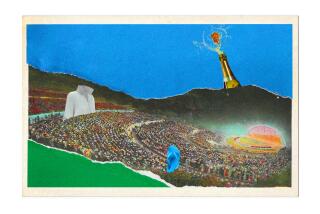Coming soon to Hollywood Boulevard: ‘All Black Lives Matter’ art will be permanent
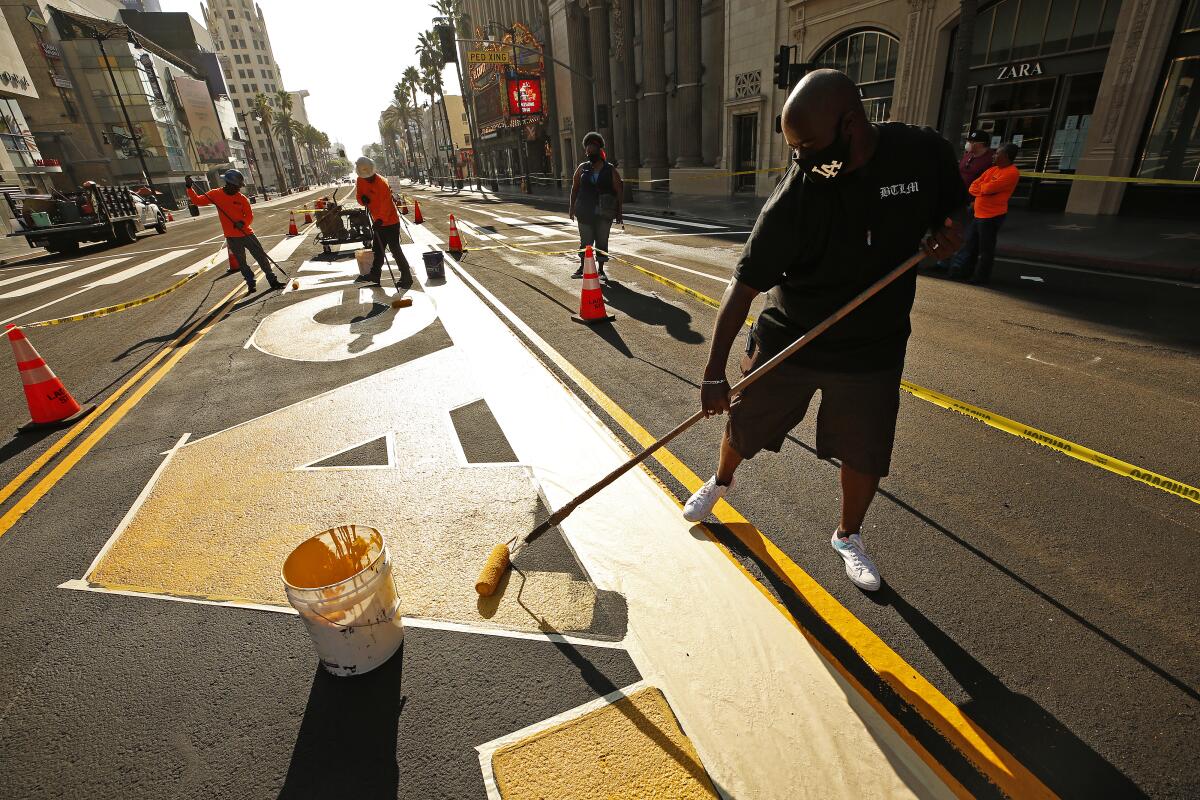
- Share via
The cameras clicked as couples from Southern California and Brazil and Pennsylvania captured their pouting selves, arms wrapped ever so tightly, posing along an empty, glistening Hollywood Boulevard.
As a rarity, a stretch of the famed thoroughfare stayed serene — without performers, without traffic.
That’s been the case since Monday, when officials from the Los Angeles Bureau of Street Services closed the road from Highland Avenue to Orange Drive this week so that workers can install a street mural in tribute to the June 14 All Black Lives Matter march. What first surfaced as temporary art will stay permanent, prompting overwhelming support from a stream of local, national and international visitors roaming a pandemic-struck Tinseltown.
“I think it’s a good, all-the-time reminder of how things should be, of how lives should be valued,” said Amir Dehghani, a psychology student at UC Irvine. “So many spread messages of peace, but they don’t follow them. Here’s something you can look at and then remember what to do.”
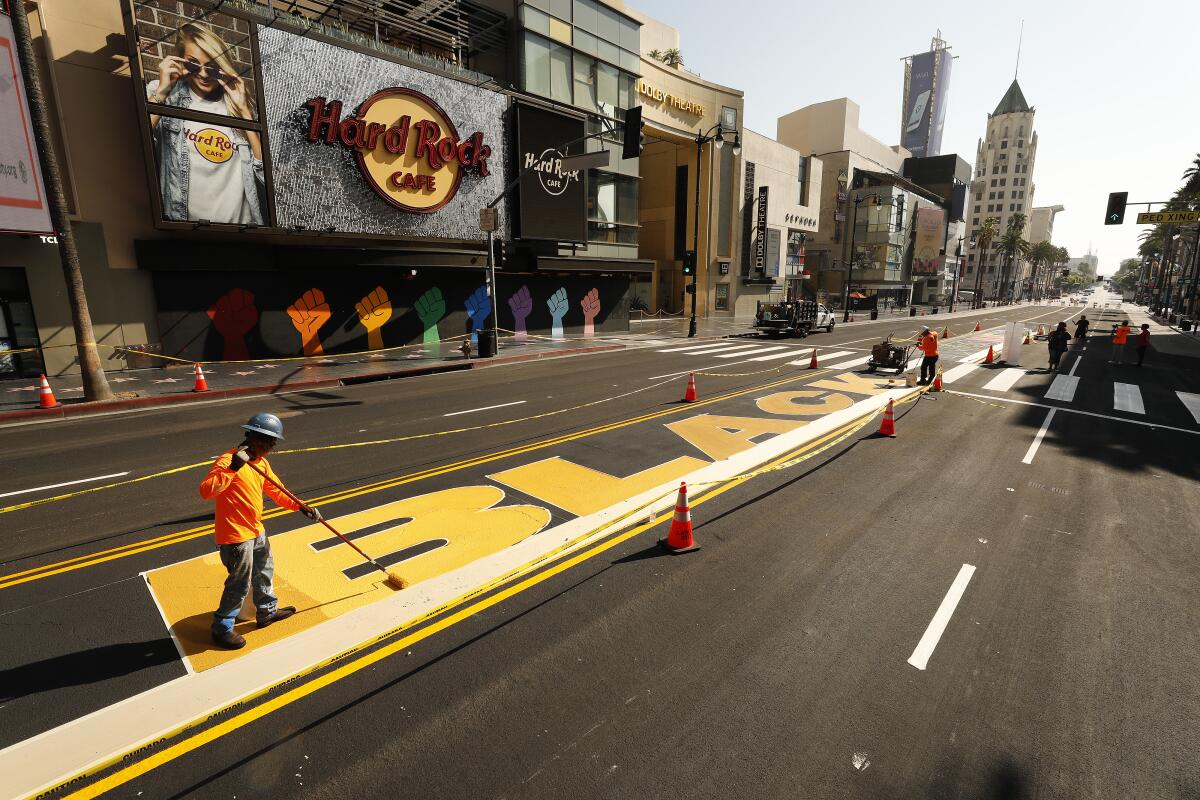
On June 13, volunteers turned out by the hundreds to paint the words “All Black Lives Matter” on the boulevard in bright lettering, reflecting the colors of the transgender, nonbinary and pride flags. When crews arrived after the march — which drew as many as 40,000 participants — to power-wash away the mural, some demonstrators and observers protested. Members of the public pushed for a more lasting tribute. Ideas unfolded.
The permanent mural is the result of a partnership among StreetsLA, City Councilman Mitch O’Farrell, the L.A. Department of Transportation, the Department of Cultural Affairs, Black LGBTQ+ Activists for Change, the Los Angeles Transgender Advisory Council and others.
With the COVID-19 outbreak, and the national reckoning over justice and full racial equality, “symbolism means a whole lot,” O’Farrell said. “This is the very first public space installation devoted to the Black queer community and transgender people of color. It’s the right time, it’s about time, and when Hollywood speaks, the audience notices.”
Myllena Silva, standing next to Dehghani while munching Starbucks snacks in the shadow of the Hollywood Roosevelt hotel, said the installation is a sign that “acceptance is what we need to aim for.” The political science student from Fortaleza, Brazil, who has resettled in Glendale, said she’s worried that “when people are suspicious of each other in society, it’s never a white person who they think looks suspicious. Why? And how is that fair?”
Heather Elias, who grew up in L.A. as well as Arizona and Indiana, said she heard about the mural on Facebook. Elias, sporting heart-shaped sunglasses, called the installation “a stamping of the standards so everyone knows what’s important, whether it’s political stance or personal stance.”
The entrepreneur, who launched her own record label, said: “Los Angeles is all about paying homage. Here, it shouldn’t matter whether you’re low-class, high-class or middle-class, people have access to choices.”
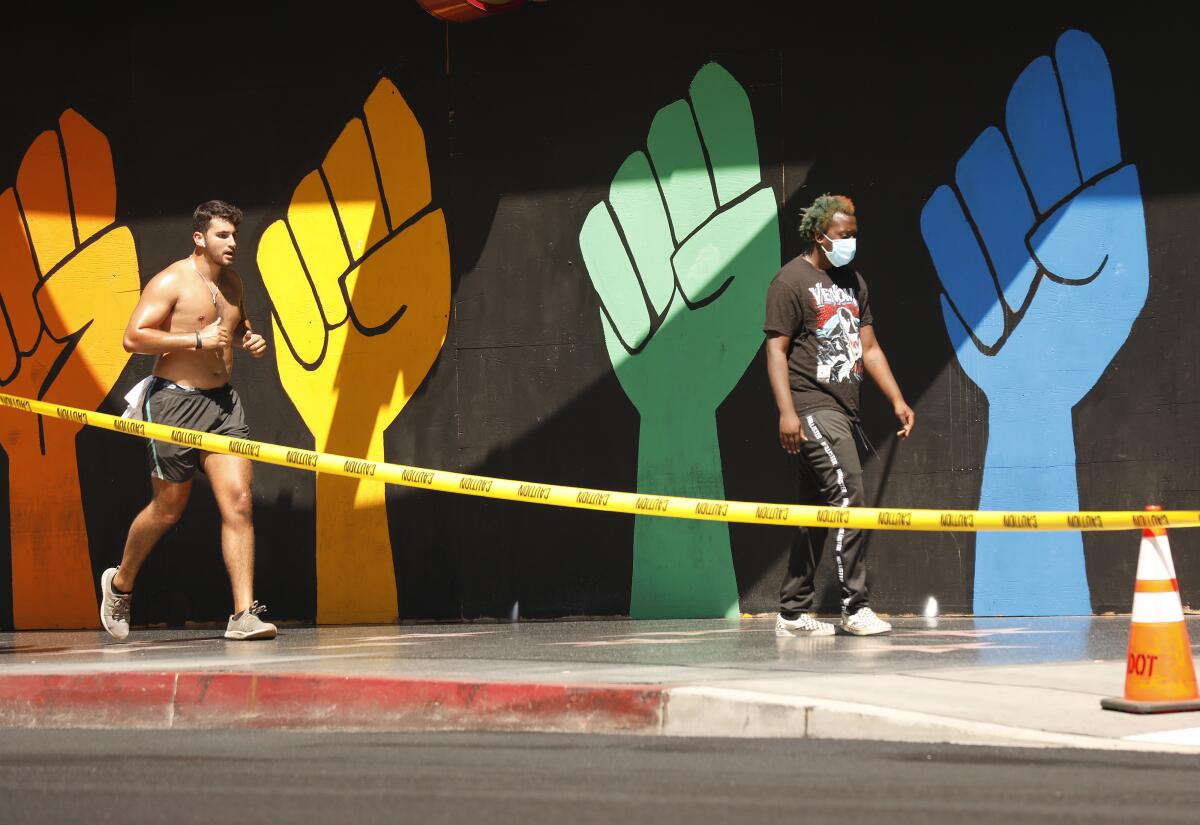
Gerald Garth, a founder of Black LGBTQ+ Activists for Change, said he’s excited about the mural’s permanence because “this is creating space for more conversations. And having conversations around equity, inclusion and homophobia can influence attitudes, can spark enlightenment. Art helps us really make sure we are amplifying not just Black lives, but Black queer lives.”
O’Farrell called the $20,000 project “a really warp-speed turnaround” marking a historic event.
“This is something that speaks to the moment, something we can be nimble doing,” said the openly gay elected official, adding that its placement in the boulevard’s center lane signals that it’s in a spot cars should not drive over.
Just days earlier, transportation workers had set up an official city of Los Angeles sign in front of the nearby Hard Rock Cafe honoring the march, which took place at the same site as the nation’s first recognized gay pride parade.
On Tuesday, two tourists wearing Liberty Bell T-shirts strolled along the Walk of Fame, Instagramming their end-of-summer delights. Destiny Casillas, an eighth-grader from New York, said she’s used to seeing “Black Lives Matter” painted in her neighborhood in the Bronx, as well as in Brooklyn and Manhattan. “We should give Black people more respect and treat them as equals,” she said.
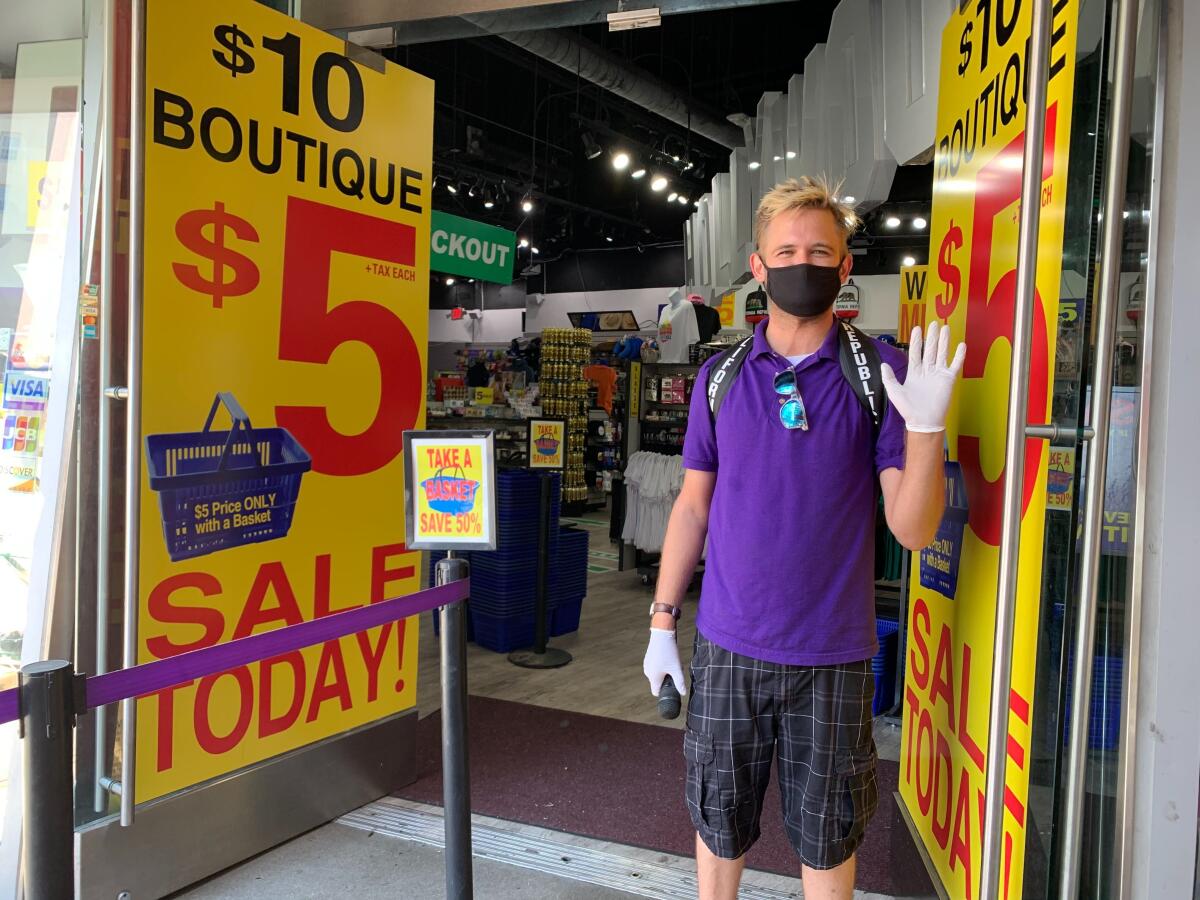
Across from her, behind giant Academy Awards statues, sales associate Branson Nejame held a microphone, his voice rising to attract customers to the $10 Boutique, where everything was on sale for $5 for a day.
“Cool,” he said, upon hearing about the artwork in progress. “I think it shows how progressive we are as a community. With all the nationwide protests, we’re actually seeing cause and effect, and to me, Hollywood has always been a smorgasbord of races and culture and religion. Why not expand on it?”
The teenager from the Big Apple, having listened to his spiel touting discount hoodies and hand sanitizer, tugged on her face mask, heading to the boulevard to check out the scene.

More to Read
Sign up for Essential California
The most important California stories and recommendations in your inbox every morning.
You may occasionally receive promotional content from the Los Angeles Times.



